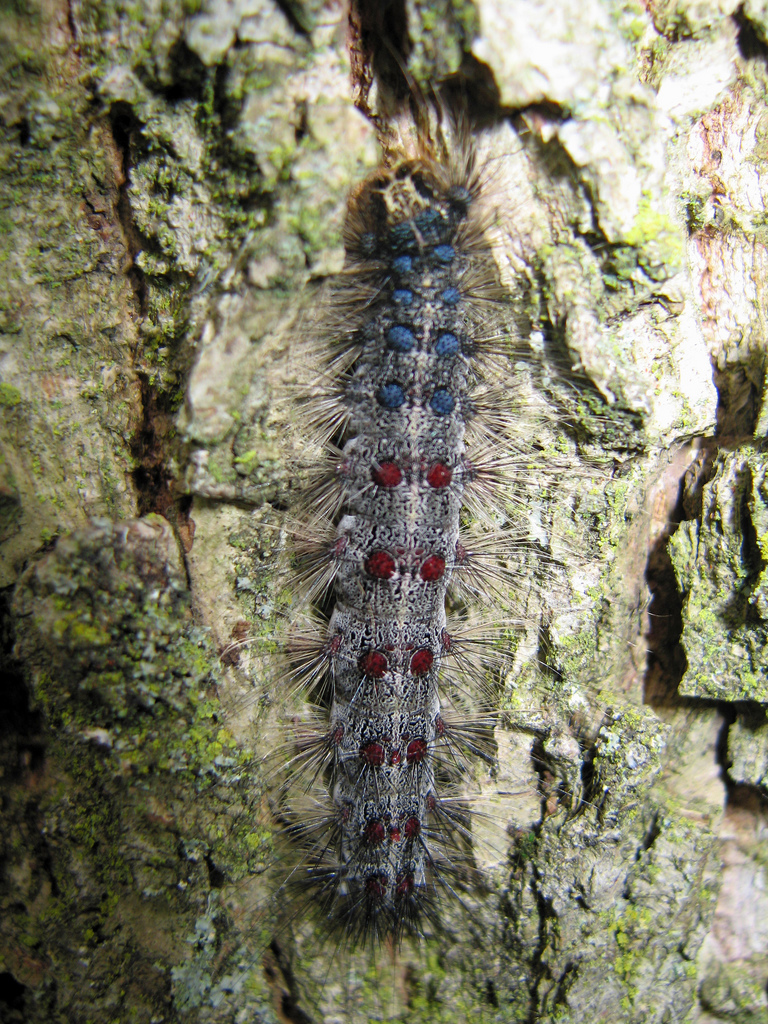Earlier this year, Massachusetts, Rhode Island, and Connecticut were beset by the most severe outbreak of gypsy moth since 1981. The rapacious insects were especially problematic in Massachusetts, where they consumed the foliage of over one hundred thousand acres of trees. The effects of the outbreak can be observed in a Twitter post published by the Boston branch of the National Weather Service in late June. The post features a pair of satellite images that display the impact of gypsy moth on southeastern New England.
Aside from causing extensive agricultural and environmental damage, the insects deluged residences and commercial properties with a combination of excrement and leaf litter, creating an unsightly mess. The widespread loss of foliage posed an additional problem: it rendered any trees stripped bare more susceptible to combustion. In pockets of New England, this increased the number of potential fire hazards during what had been an especially dry summer.
The insect’s resurgence corresponds with the recent dry spells in New England. The arid weather has prevented the fungus Entomophaga maimaga from becoming established in the region, enabling the insect to flourish. The fungus is one of gypsy moth’s most lethal predators. It produces spores that infect the gypsy moth larvae, often with terminal results. The fungus is a vital resource for limiting gypsy moth populations. If the dry conditions persist, the fungus will remain scarce, and gypsy moth populations could continue to multiply.
By now, the caterpillars will have metamorphosed into moths, and laid masses of eggs, completing their life cycle. These hard egg masses can be found in a variety of locations: from tree branches to firewood, as well as on buildings, vehicles, and outdoor furniture. While the egg masses can be easily removed from more accessible fixtures, those that are located in trees may require the efforts of a professional arborist next spring.
Additional Resources:
http://boston.cbslocal.com/2016/06/30/gypsy-moth-caterpillars-trees-new-england/
If you have any questions about gypsy moths, or you are interested in one of our tree services, contact us at 978-468-6688, or Sales@IronTreeService.com. We are available 24/7, and can accommodate any schedule. All estimates are free of charge. We look forward to hearing from you.
Photo courtesy of Greg Schechter under the Creative Commons Attribution 2.0 Generic License
